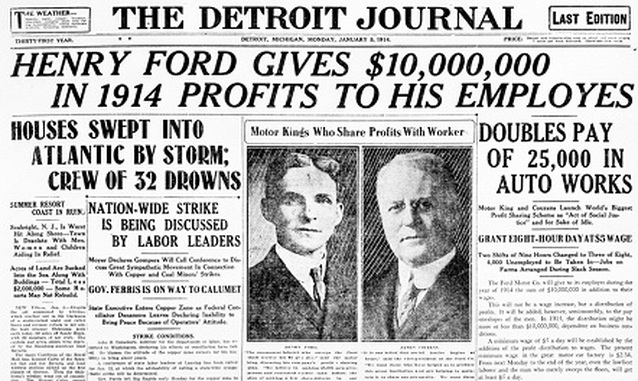Popular culture within the 20th century has celebrated the ideology of the American Dream. The concept of freedom might have changed considerably in the last century with many of us realising the value of time, health and location independence. Remote working is at the forefront of this revolution, the new dream is remote.
As a teenager of the nineties, I was immersed in American culture through my love of basketball, music, and film. In my mind, all roads pointed to the land of the free and the American dream that could facilitate a rise to wealth – regardless of race, religion, or financial background.
I am un undiluted admirer of the American values and the American dream and I believe they will continue to inspire not just the people of the United States but millions across the face of the globe.
Margaret Thatcher

American history is littered with examples of Presidents whose political decisions advocated opportunity and freedom for the American population – mostly through the dream of homeownership supported and advanced by Roosevelt, and the Clinton and Bush administrations. Kimberly Amadeo very accurately defined the dream:
The American Dream legally protects every American’s right to achieve their potential.
Her article examines the geographical, historical, and political factors that provided the right environment for the American Dream to prosper. However, the world is changing and those age-old ideals might not be at the heart of what people really want nowadays. Is a mortgage and 40yr career the true measure of fulfilling one’s potential?
For generations, families have cycled through the life of education, work, home ownership, children, retirement. And although not necessarily in that order, this framework has remained the standard.
Following the Industrial Revolution, Henry Ford cut his workers’ hours down significantly and the 40-hr work week was created. Why did he do this? To create the time required for people to buy stuff. And consumerism has grown to this very day.

It seems like nobody has really started to question this until more recently and perhaps that shift in mindset has been facilitated by the rise of the internet and technology. Many work functions can now be performed on the end of a mobile phone and laptop. Data suggests that the tide of remote working is upon us with expected increases in the number of freelancers across the developed nations of Europe and the US. In the UK freelance workers have increased 5% year on year since 2011 and total earnings for independent workers topped £228bn. In the US the economic value of total earnings for independent workers was £1tn.
You only have to look at a unicorn like WeWork to see that people are increasingly valuing flexible offices and co-working arrangements. Co-working spaces and digital hubs are springing up all over the world, eager to fulfil the needs of fast wifi and constant coffee required by the new age of digital nomads.
I believe we’ll see a shift to contracting into a wide number of different roles and change careers a number of times during our working life. Our work, increasingly remote, will be judged on results as opposed to actions or time at a desk each week. People are also starting to make use of mini-retirements or career breaks during their working lives. I don’t want to be travelling the world with creaky knees and suspect bodily functions when I have hit retirement age. I want my time and those valuable experiences now, whilst I’m functional enough to be able to fully enjoy them.
In the tech scene, nimble companies with distributed teams of remote workers are making life hard for their incumbent counterparts. In the financial sector, fintechs have stripped valuable functions from banks by utilising technology. And those banks then become strangled and restricted by their own size, unable to be agile due to legacy systems, and unable to cut costs due to expensive city offices and huge overheads.
The great thing about remote is that it allows everyone to create their own American Dream. Your dream could be waking up to waves lapping at the shores in some tropical paradise. Conversely, it could be collecting the children from school and helping with their homework. We can now direct our attention to the things we value most. We don’t have to accept that society values a big house and a new car every few years with the trade-off being a loss of control between Monday and Friday.

Working remotely doesn’t mean you have to lose ambition because you got stuck into yoga and meditation at a retreat in Bali. You can still work towards the finances to fund your dreams, you just don’t need to be stuck at a desk whilst trying to get there. You can take some of those dreams for along the way.
A lot of people are lamenting the fact that technology will take our jobs. And perhaps it will take some of them. But in the meantime, why not use technology to take some time and quality of life back for yourself and your family. The new American Dream is remote.
Sources
https://www.thebalance.com/what-is-the-american-dream-quotes-and-history-3306009
https://crew.co/blog/why-you-shouldnt-work-set-hours/
Read more of my work here.



